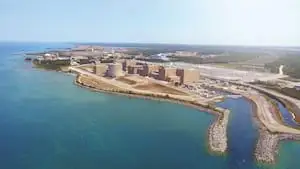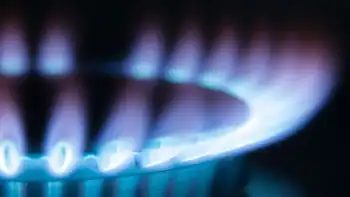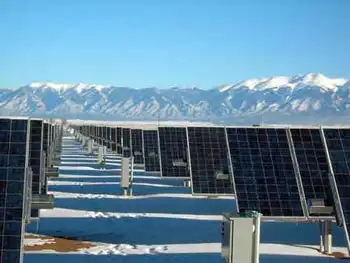Jordan poised to enter nuclear age
Jordan hopes to provide 30% of its power needs through nuclear energy by 2030.
The sharp rise in global oil prices has delivered a severe blow to Jordan's economy. The kingdom depends on imports of oil and natural gas for 95% of its energy consumption, which annually costs nearly a quarter of its revenue.
Although the government has taken steps to reduce oil subsidies, imported fuel still cost Jordan $422 million in 2007.
Meanwhile, prices at fuel pumps in the kingdom have soared, putting a severe strain on the pocket books of ordinary Jordanians.
In a move to reduce the country's dependence on imported hydrocarbons, King Abdullah announced in November 2007 that Jordan had developed a new energy strategy based on energy conservation and the development of indigenous resources such as nuclear power, oil shale, and renewables.
One of the main goals of the programme is to provide 30% of Jordan's power from nuclear energy by 2030. Jordan's energy minister also said he expects the country to have a nuclear power plant operating by 2015, for electricity and desalination purposes.
The kingdom is well situated to develop a nuclear power industry. The Jordanian government has estimated its conventional uranium reserves at 140,000 tonnes, plus a further 59,000 tonnes in phosphate deposits.
Meanwhile, Jordan's nuclear ambition has received support from the International Atomic Energy Agency (IAEA).
The agency's Director General Mohamed El Baradei promised during a regional tour in April 2007 that the UN nuclear watchdog was ready to help Jordan to benefit from nuclear energy for peaceful purposes, while Abdullah has pledged that the kingdom 'will seek to acquire nuclear energy in line with international standards and laws related to the use of nuclear energy'.
Jordan joined the Global Nuclear Energy Partnership (GNEP), the US-led initiative to expand nuclear energy use worldwide while reducing the threat of nuclear weapons proliferation, in 2007.
Recently the kingdom has made great progress in achieving its goal of developing its own nuclear programme.
At the end of June, Jordan signed a nuclear cooperation agreement with the UK and a memorandum of understanding (MoU) with Canadian firms SNC-Lavalin and Atomic Energy of Canada. Similar deals were later signed with China and the United States.
Also in June, Jordan announced that it had begun a feasibility study for the creation of kingdom's first uranium manufacturing facility.
The study, which is due to be completed in January, will identify the best technologies for uranium extraction from phosphoric acid, set the engineering designs of the facility and determine the total capital needed, as well as the operating cost.
Meanwhile, the United States is providing expertise to Jordan through an MoU signed last September, which says that the two sides will work together to develop specifications and requirements for an appropriate power reactor, including fuel service arrangements, personnel training, nuclear safety and energy technology.
The Arab kingdom is also receiving technical assistance from the European Union on establishing a legislative and regulatory framework to promote highest standards of nuclear safety.
However, the most significant development in Jordan's efforts to develop nuclear power came in late August when it signed a nuclear agreement with France and an MoU with French company, Areva, on nuclear cooperation.
Under the multi-pronged deal, France will help the kingdom develop a nuclear programme to generate electricity and power water desalination plants, in exchange for uranium mining rights in Jordan's southern region.
The head of the Jordan Atomic Energy Commission, Khalid Touqan, said the MoU with Areva is 'declaration of principles' that set the guidelines for a comprehensive agreement that is being negotiated now.
The agreement covers not just mining but all aspects of cooperation in the field of peaceful nuclear energy.
Areva will be working to calculate the exact quantities of uranium in the kingdom and, following a field study, work will begin on building the mine and a special plant to extract the yellow cake, with actual production expected to start in 2012.
Related News

Operating record for Bruce Power as Covid-19 support Council announced
ONTARIO - Canada’s Bruce Power said on 1 May that unit 1 at the Bruce nuclear power plant had set a record of 624 consecutive days of reliable operation – the longest since it was returned to service in 2012.
It exceeded Bruce 8’s run of 623 consecutive days between May 2016 and February 2018. Bruce 1, a Candu reactor, was put into service in 1977. It was shut down and mothballed by the former Ontario Hydro in 1997, and was refurbished and returned to service in 2012 by Bruce Power.
Bruce units 3 and 4 were restarted in 2003 and 2004.…





